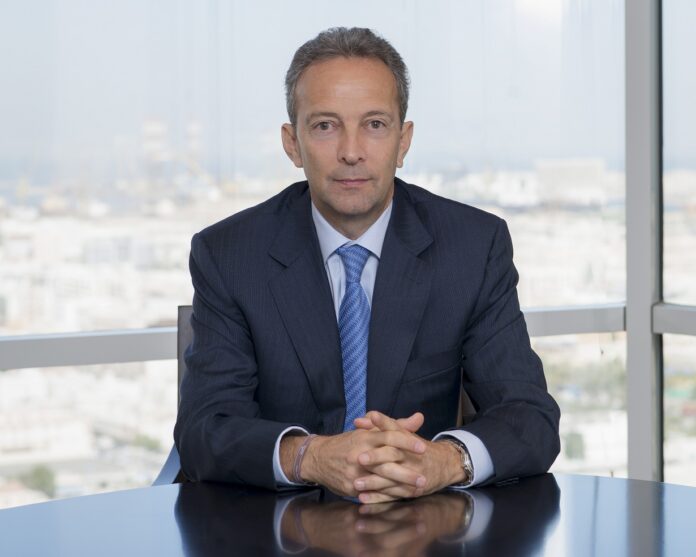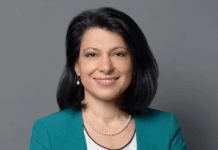The global value of the Islamic banking sector has been projected to reach $3.8 trillion in this year. What do you think is fuelling this growth?
While several factors have contributed to the remarkable growth in Islamic banking over the last decade, it is critical to note that just 10 countries account for almost 95% of the world’s Shariah-compliant assets. So naturally, a primary factor in this upward trend in Islamic banking is the growing wealth in the Organisation of Islamic Cooperation (OIC) countries led by Malaysia, Saudi Arabia, the United Arab Emirates (UAE), Indonesia, Egypt and Turkey, among others.
Further, one of the largest drivers in Islamic finance is the Sukuk market (Islamic bonds), which has grown in popularity in these countries – especially in the Middle East within governments and corporate financing. Indeed, the market for green and sustainable bonds and Sukuks in GCC economies set a record in 2022 amid increased participation from banks and government-related entities. A Bloomberg report[1] stated that total green and sustainable bond and Sukuk issuances in the region last year reached $8.5 billion from 15 deals, compared with $605 million from six deals in 2021. Saudi Arabia was the leading issuer within the region, accounting for more than half of the total volume, with the UAE responsible for the remainder.
Improved legal and regulatory structures have also significantly contributed to this growth in the region. Lombard Odier’s recent ‘Middle East investor survey’ of 300 High Net Worth Individuals (HNWIs) across MENA reiterated the renewed confidence and interest in Islamic equities and Sukuks regionally.
Globally, a smaller but important accelerator has also been the young, thriving Muslim population in non-OIC countries like the United Kingdom, United States and other European nations. Recent reports[2] have shown that, globally, more than 74% of young Muslims would like their banks to invest in alignment with their clients’ religious beliefs. The UK currently leads with the most Islamic fintechs, a total of 27 companies[3], followed by Malaysia and the UAE.
How is the expansion of wealth management and private banking services affecting Shariah finance in the region?
As per Lombard Odier’s 2022 survey, of the three hundred HNWIs canvassed from across the region, 61% of investors mentioned that their interest in Islamic investment has increased in the last 12 months, a strong indication of the regional market buoyancy. Islamic finance could become an important resource to meet large and growing investment needs in these emerging economies.
Further, western financial institutions increasingly appreciate the cultural nuances of the region and are open to carving out asset classes to suit its value-based investing requirements. Islamic finance is gaining widespread recognition and acceptance; now is the time for western wealth management and private banking services to ride the wave.
90% of survey respondents said that as part of their private banking portfolio, they already allocate some funds to Islamic investments. The potential for Islamic banking services to grow in the region is tremendous, with Sukuks and Islamic loans appearing to be the preferred Islamic asset class. Sukuks present an opportunity for investors to earn returns as well as contribute to the infrastructure development of a country in line with their belief system. Currently, Malaysia issues more than half of existing Sukuk bonds, however their use is increasing across the Middle East and North Africa.
Will the volume of Sukuk issuance increase or decrease in the next two years?
Research[4] suggests that demand for Shariah-compliant financing will overtake conventional funding this year, a trend resulting from strong economic growth in key markets, coupled with development agendas. In 2023, global Sukuk issuance is forecast at around $175 billion, thanks to strong demand from banking and corporate sectors, as well as sovereign financing requirements in Malaysia and Indonesia.
Overall, with global oil prices soaring and Middle East markets defying global economic jitters, this will be a positive but evolving story, regionally buoyed by global demographics, with Islamic banking assets forecast to cross the $4 trillion threshold by 2026.
How is Islamic Banking in the region adapting to the rapid and widespread integration of technology and innovation in finance?
The key drivers of the Islamic banking sector will be millennial and Generation Z Muslims, who are expected to account for 75% of Islamic banking revenue within the next ten years.[5] Our Lombard Odier survey showed that more than half of younger respondents share traditional Middle Eastern values based on their country’s religious and cultural beliefs.
According to public research, more than half of young Islamic finance clients would be keen to adopt Islamic banking if it were more accessible. Globally, the Internet generation of Muslims want banking services that align with their values, but without compromising on ease of use. However, the Islamic banking market sometimes lags behind conventional banking services, which have seen a surge of technological innovation and automation through the issuance of digital instruments. An ability to innovate and to adopt digital services would serve to boost the take-up of Islamic investments among this next generation of consumers.
That being said, digitalisation in the Islamic finance sector in general is thriving. According to the Global Islamic Fintech Report 2022[6], it is estimated that more than 250 Islamic Fintechs are operating globally, across OIC and non-OIC countries. Overall, the global Islamic Fintech market is estimated at $79 billion in transaction volume (2021) and is expected to grow on average by 18% annually, to reach $179 billion by 2026.
How do you see the role of Islamic finance developing both regionally and globally in the next five years?
Given Islamic finance’s historic resilience to global market challenges, as well as the turmoil during the pandemic, we can be optimistic regarding its potential – not only in this region but globally. Values-based investing is gaining traction and investors in the Middle East, where strong religious and cultural values are key social and economic drivers, are keen to bank on Islamic finance to meet their needs.
Our survey also revealed that Shariah-compliant asset allocation among the younger generation is expected to increase to 60% from the current 52% in the next five years, compared to 56% for older investors. Lombard Odier has developed investment solutions adapted to these needs and requirements, offering a wide range of opportunities from Shariah-compliant discretionary mandates to advise on Sukuks or approved equities, among others.
Innovation and technological adoption will also be critical to the growth of Islamic banking. Asset classes with Shariah-compliant strategies will need to expand to allow investors to align with their values.
[1] Bloomberg’s Capital Markets League Table
[2] Faith & finance: The changing face of Islamic banking | SaaS cloud banking platform | Mambu
[3] What are the latest UK Islamic finance trends? | Refinitiv Perspectives
[4] Research by Moody’s Investors Service
[5] https://thefintechtimes.com/mambu-on-how-millennials-are-driving-demand-for-islamic-banking/
[6] https://www.dinarstandard.com/post/global-islamic-fintech-report-2022











